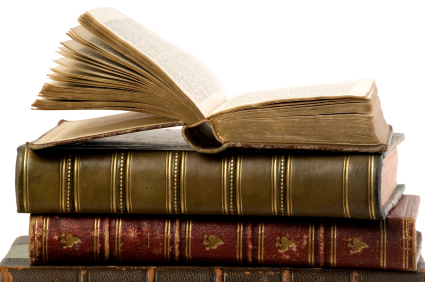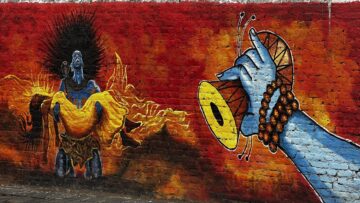Indic Academy had earlier declared a travel and registration grant for a Workshop on Navya-Nyaya Language and Methodology, conducted by Vidyavatika, Rishi Rina Trust in Amrita Vishwa Vidyapeetham, Coimbatore, Tamil Nadu, from 23rd to 31st December, 2019. We are pleased to share that six students from different corners of India attended and benefitted from the course with this grant.
The workshop was conducted by Prof. V. N. Jha and Prof. Ujjwala Jha, often referred to as the First Family of Indian Epistemology. Prof. V. N. Jha retired as Director of the Centre of Advanced Study in Sanskrit, Pune after a dedicated service of over 25 years. He has authored and edited over 50 books; and published close to 200 research articles in Indian and International Journals. He has been honoured by a number of academic institutions with titles like Mahamahopadhyaya, Vachaspati, Pandita-Sarvabhauma, D. Litt., etc. Prof. Ujjwala Jha, a Senior Professor at the Centre of Advanced Study in Sanskrit, Pune, has over 20 books, and close to 100 articles to her credit. With a teaching experience spanning over three decades, Prof. Ujjwala has delivered over 150 lectures all over India.
Here are the experiences of three of the students who attended this workshop, Ritoo Antil (Delhi), Piu Mukherjee (West Bengal), and Saurabh Jha (Bihar).
Nine days of learning our indigenous logical language (Ritoo Antil)
It was a mesmerizing experience. I learned how the Navya-Nyaya language represents one of the finest products of human intellect that sharpens it to the edge. It offers devices of logical argumentation, and supplies us with a novel set of terminology for mapping reality. In order to have the exact view of reality our language should be precise and free from all the possible ambiguities, where both the processes of Shabadhikarana (encoding) and Shabdabodhana (decoding) are accurate; which is exactly what Navya-Nyaya does.
Navya-Nyāya model of communication formulates the ideal language to refer to reality as it is. It focuses on precision to remove errors and ambiguity from language. This also helps in the progress of algorithm in the field of artificial intelligence and computer science. It is also the need of the hour to ponder into our rich cultural wisdom and I am very thankful for getting this opportunity to study such a meaningful text, that can enhance one’s ability of analysis and synthesis.
‘Language captures Reality’ (Piu Mukherjee)
The workshop was academically enriching; and very helpful for me with my doctoral research on ‘Dharmakīrti on Import of Words: An Exposition of the Buddhist Theory of Meaning‘ which is directly related to Naiyayika thoughts about word-meaning relation.
It was a beautiful experience and a great opportunity to read original Sanskrit text of the Navya-Nyaya-Bhasha-Pradipa of Mm. Mahesh Chandra Nyayaratna, with Dr. Ujjwala Jha. I am grateful to the organizers for giving me the opportunity to take lessons from them. Each and every issue in the text was analyzed and discussed in great detail. Along with explaining the idea of Language captures Reality, Jha sir also elaborated on ideas like Lakshana (Definition), Avacchedaka and Avacchinna (Delimiter and Delimited), Counter-Relatum and Base-Relatum, Inherent property and Contextual property, etc. Ujjwala madam’s explanations with detailed diagrams helped us in understanding the complex ideas.
‘Navya-Nyaya Language’ (Saurabh Jha)
It was an amazing experience. I would like express my gratitude to Dr V N Jha Sir and Dr Ujjawala Jha madam for their teachings and blessings. Jha sir explained key terms in the text, while Jha madam taught the actual text. They started with explaining the basics like seven padarthas and their classifications.
Second step is Lakshana which is the most important part and goal of Navya Nyaya language, which aims at defining in a precise language, free from the three defects (over application, narrow application and non-application). Definition must have a specific and uncommon property. This is the most important feature of Navya Nyaya.
Third topic was Delimiter and Delimited (Avachhedaka and Avachhinna). This is related to definition because, whenever we are going to define some substance we have to go through its properties. They may be universal properties or extraneous properties. Delimiter is the indicator of the locus of property in Padartha, so through the Delimiter we can easily define any Padartha properly.
Relation was the next topic, broadly classified into two types, Direct Relations and Indirect Relations. Direct Relation is something which does not consist of any other relation. It is classified in three way. (1) Inherence (Samvaya) (2) Contact (Sanyoga) (3) Self- linking (Swarupa).
After these topics we learned about the relation between the Substance and its Properties, like Property and Property-holders, Quality and Qualifier, etc. With this knowledge we can understand the interrelation of Substance and Quality in its entirety. An object with its properties is known as the Content of Knowledge. The Content of Knowledge is again converted into language, and then it is discoursed in front of others to explain the object.
These are the techniques to convert knowledge into a precise language, and this language then reveals the reality of world.
(Experiences of the other participants will be included in the second part.)
Disclaimer: The opinions expressed in this article belong to the author. Indic Today is neither responsible nor liable for the accuracy, completeness, suitability, or validity of any information in the article.








